GL Announces UMTS IuCS Interface Emulation over ATM
Welcome to another August 2014 issue of GL's Newsletter providing information and insight into our enhanced MAPS™ UMTS IuCS Interface Emulator over ATM.
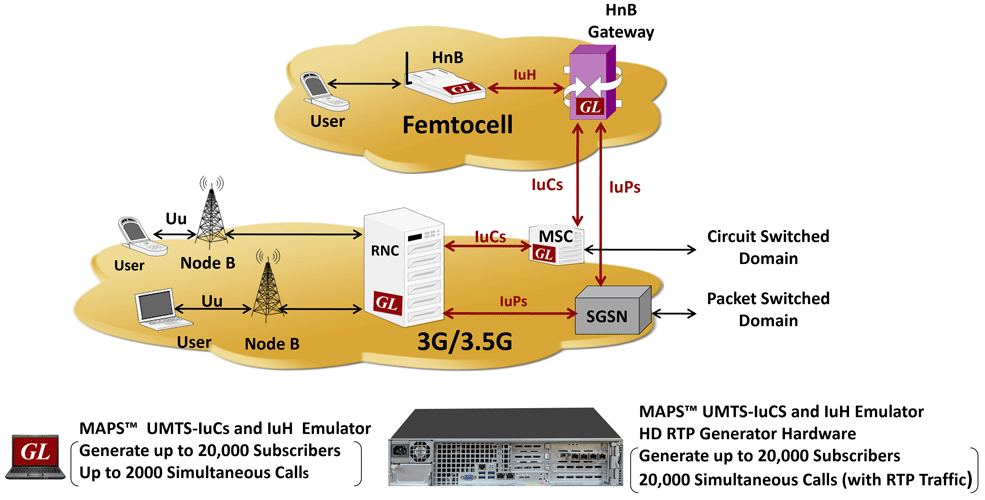
Overview
Universal Mobile Telecommunications System (UMTS) is a 3rd generation mobile technology that can support greater data rates for voice and video data transmission to the mobile users. The underlying transport layer for UMTS can be Asynchronous Transfer Mode (ATM), or Internet Protocol (IP).
GL's LightSpeed1000™ hardware platform with quad optical ports supports simulation of UMTS IuCS over ATM layer on OC-3/STM-1 interface using MAPS™ UMTS IuCS ATM application.
The LightSpeed1000™ hardware platform (PCIe Card and USB Pod) supports wire-speed processing on quad OC-3/12 and STM-1/4 optical ports for functions such as recording, playback, protocol simulation and analysis of Unchannelized ATM, PoS, and Channelized traffic. The LightSpeed1000™ comes with software for overall monitoring, protocol analysis and emulation, and BERT with a price tag that compares very favorably with similar test instruments at three times the price. The hardware can also be easily configured / programmed for delaying of ATM Cells or PPP packets.
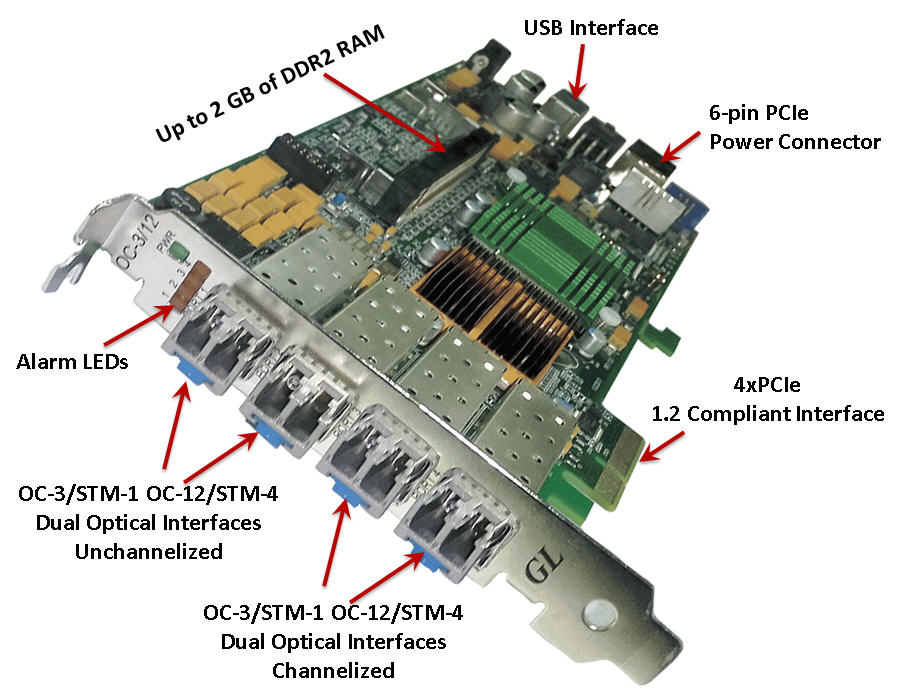
MAPS™ UMTS IuCS ATM can emulate the RNC (Radio Network Controller) and the MSC (Mobile Switching Center) nodes by generating RANAP, ALCAP, and DTAP signaling messages over SSCOP. It includes ready-scripts to simulate all IuCS signaling procedures such as Location Update, Call Control MO (Mobile Originating), Mobile Terminating (MT) and SMS procedures.
The application gives the users the unlimited ability to edit messages and control scenarios (message sequence). "Message sequences" are generated through scripts. "Messages" are created using message templates.
MAPS™ IuCS ATM uses SSCOP server for establishing SSCOP links over which RANAP and ALCAP signaling will be carried for making calls. SSCOP Server is a GL's WCS based server module that provides SSCOP, AAL5 and AAL2 layer services.
MAPS™ IuCS ATM internally uses AAL2 Traffic Generator for traffic generation on a successfully established call. Various traffic types like Tone, Digits and File playback are supported.
Supported Protocol Standards
Shown below is the protocol stack supported by MAPS™ UMTS IuCS ATM for IuCS signaling.
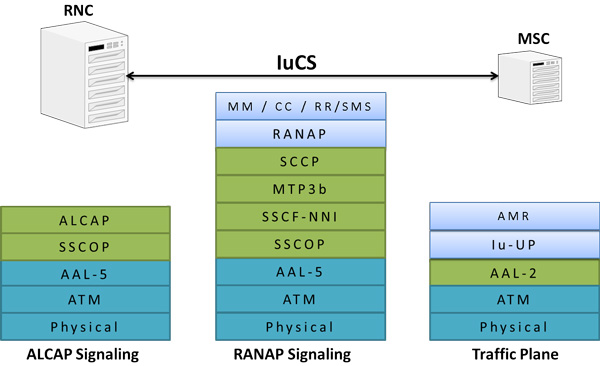
This test tool can also be used to perform protocol testing as per the following specifications
| Supported Protocols | Standard / Specification Used |
|---|---|
| SCCP | Q.713, CCITT (ITU-T) Blue Book |
| SSCOP | ITU-T Q.2110 |
| MTP3b | ITU-T Recommendation Q.2210 |
| AAL Type 2 (ALCAP) | ITU-T Recommendation Q.2630.1 |
| RANAP | 3GPP TS 25.413 V9.1.0 |
| MM /CC | 3GPP TS 24.008 V5.16.0 (2006-06) |
| RR | 3GPP TS 04.18 V8.13.0 |
| SMS | 3GPP TS 03.40 V7.5.0 & 3GPP TS 04.11 V7.1.0 GSM 03.38 version 7.2.0 Release 1998 |
| Iu UP (User Plane) | 3GPP TS 25.415 |
Call Generation
Call Generation option allows the user to simulate outgoing communications where an outgoing call is initiated by sending call control messages using proper scripts and profiles. The profile allows necessary parameters of call control messages to be changed during runtime. Messages are exchanged between the MAPS™ and the DUT. MAPS™ application acts as either the caller or resides at the network terminal acting as callee.
In IuCS interface, MAPS™ acts as either RNC to test MSC (DUT) or MSC to test RNC (DUT) and simulates the MO and MT call control procedures.
MAPS™ IuCS ATM can be configured to handle auto or user-defined traffic over the established call. Various traffic types supported over ATM such as send /record voice files, transmit /detect DTMF /MF digits, and send /detect single /dual tones.
Shown below is a typical MO call flow and screenshot generated by MAPS™ IuCS ATM.
Call Reception
The MAPS™ UMTS IuCS ATM can also automate the responses to any incoming messages by a DUT by pre-configuring the scripts against the messages using the Incoming Call Handler Configuration feature. The Call Reception window will then display the incoming call flow, script flow, and events.
Bulk Call Simulation for Load Testing
MAPS™ UMTS IuCS ATM supports Bulk Call Simulation and Stress/Load Testing capabilities through Load Generation feature. Load generation is possible with different statistical distribution patterns such as Uniform, Ramp, Sawtooth, Fixed, and Normal distribution. Call duration also can be randomized using similar statistical distribution. With this feature, the users can configure Stress/Load Testing parameters such as Call per Second (CPS), Max Simultaneous Call parameters.
Call Statistics
By default, all call handling scripts (irrespective of the type of the functions) are assessed by MAPS™ to provide statistical information about Total Calls, Active Calls, Completed Calls, Passed Calls, Failed Calls, and Calls/Sec . It is also possible to characterize the statistical information under different groups of call handling scripts under a unique heading. In addition, Call Generation and Call Reception windows provide useful call status & script execution results.
Summary of Features
- Simulates RNC, and MSC entities in IuCS interface
- Generates and processes all Mobility Management, Session Management, RANAP, ALCAP, and DTAP messages
- User controlled access to RANAP, ALCAP, and DTAP messages
- SSCOP Server (WCS based server module) provides SSCOP, AAL5 and AAL2 layer services
- Ready scripts for all the IuCS signaling procedures such as Mobile Originating, Mobile Terminating, Location Updating, SMS and HandOver procedures for quick testing
- Supports RAB Assignment, Authentication, TMSI Reallocation, Encryption, and other Call Control procedures
- Supports traffic types like send and receive tones, digits, and files
General MAPS™ Features
- Call Simulation
- Script based and protocol independent software architecture
- Auto generate and respond to signaling messages
- Traffic Handling Capabilities (requires additional license)
- Pre-processing tools
- Easy script builder for quick testing to advance testing
- Customization of call flow and messages
- Automation
- Automated Load /Stress Testing
- Scheduler and pre-saved configuration files for automated testing
- Centralized Control and Access
- Command Line Interface (requires additional license)
- Option to send reports to database accessible via web interface
- Centralized control of multiple MAPS™ applications remotely from single client application
- Reports and Statistics
- Call Statistics, Capture Events, Error Events, and Link Status
For comprehensive information on the application, you can refer to the MAPS™ UMTS IuCS Interface Emulator over ATM web page.
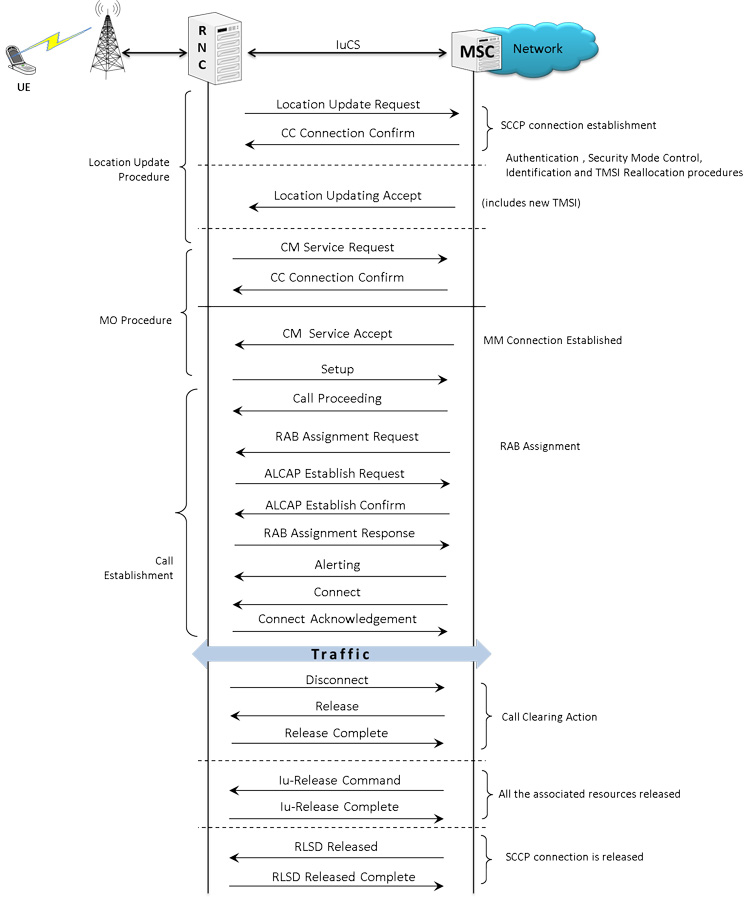
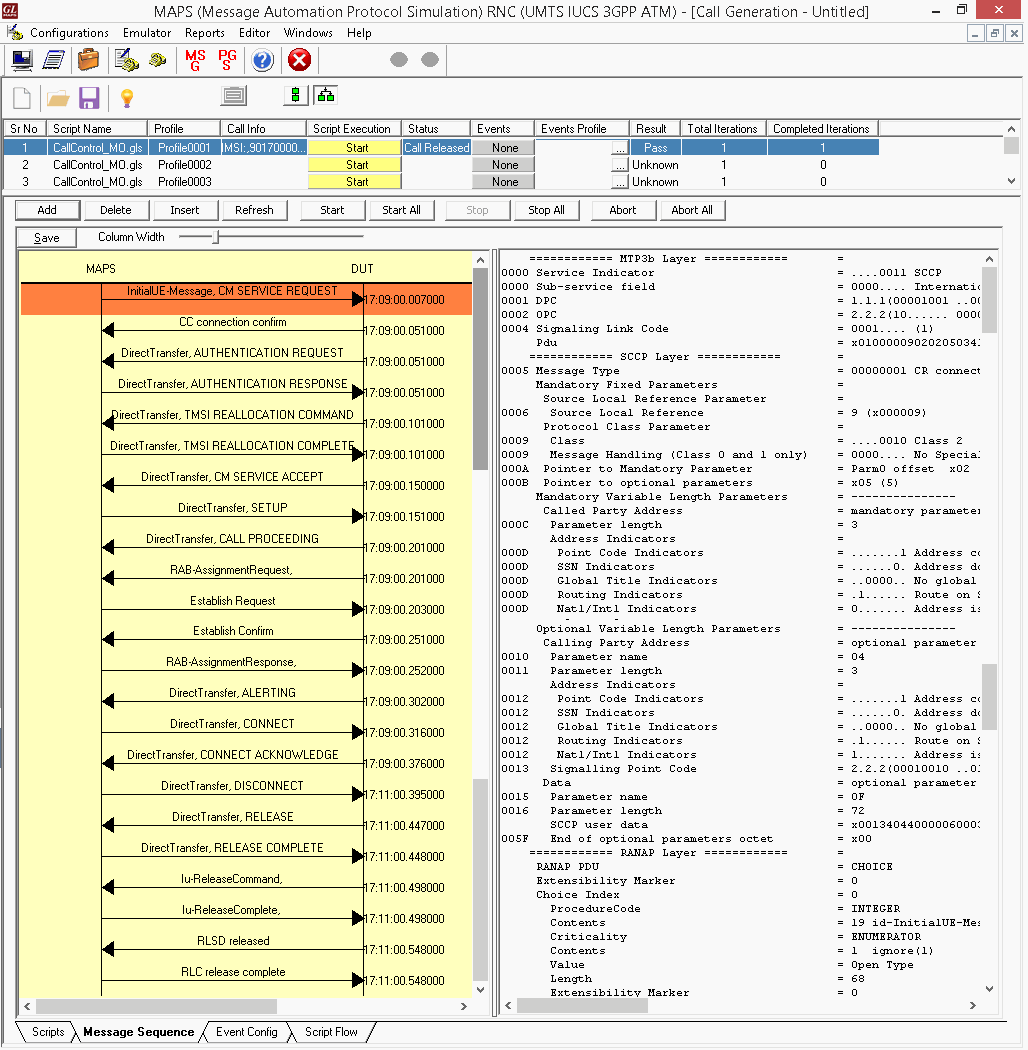
 Back to Newsletter Index Page
Back to Newsletter Index Page